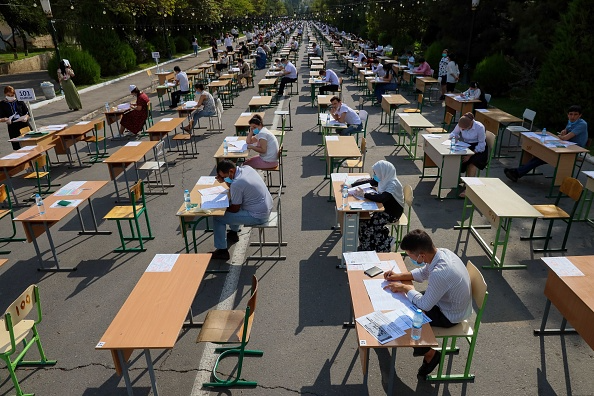You are here
Legal Reforms in Uzbekistan: A New Era
Judge Sherzod Yuldashev
In 2017, Uzbekistan began a period of historic economic and political liberalization, enacting a series of sweeping reforms in all sectors. The proposed and enacted changes to the justice system are far reaching with new mechanisms for public input and oversight. These reforms impact citizens, civil society, courts, prosecutors, lawyers, and judges.
President Shavkat Mirzoyoyev and his government have led this process, overseeing new legislation, presidential decrees, and regulations. This is part of a comprehensive “Five Point Development Strategy Plan of Uzbekistan for 2017-2021” that outlines policy priorities related to the economy, social protections, national security, and foreign policy as well as initiatives aimed at improving the judicial system. Justice sector reform has focused on improving the protection of human rights and ensuring genuine independence of the judiciary.
In an effort to improve the quality of judicial review, three reforms were implemented in 2017: court specialization, the creation of a judicial council, and new judicial tenure rules. There are now four categories of courts: criminal, civil, administrative and economic. The new administrative courts review civil and administrative cases, as well as cases involving alleged unlawful acts by government agencies and officials. These courts were created in response to longtime criticism of the quality of administrative proceedings in Uzbekistan. Special training for administrative court judges has also been introduced.
A new constitutional body, the Supreme Judicial Council, was assigned the authority of selecting judges on a competitive basis and overseeing their appointment. It also monitors judicial conduct and reviews citizen complaints about unethical or inappropriate judicial conduct and, to a limited extent, the quality of judges’ work.
The tenure of judicial office also was modified: the first term is set at 5 years, the first reappointment is for 10 years, and the second reappointment is life tenure. The judge’s work and temperament are reviewed at each successive stage by the Council. A new mandatory retirement age was imposed: 75 years of age for Supreme Court justices and 65 years of age for lower court judges.
Responsibility for judicial training was consolidated in a new High School of Judges, an institution under the jurisdiction of the Supreme Judicial Council. The school is responsible for the initial and continuous training of judges, judicial candidates, and court personnel. Legal education was also restructured. The curriculum of Tashkent State University Law Faculty was updated and its pedagogy modernized. With the assistance of professors from Boston College Law School, the old lecture-based approach was abandoned in favor of experiential learning.
Another area undergoing significant reform is Uzbekistan’s criminal law and procedure. This includes a reclassification of crimes, new procedural safeguards to ensure fair trials, sentencing reforms, and the introduction of alternatives to incarceration. There is also an effort to improve transparency and facilitate access to justice. Supreme Court decisions are published on the court’s website and electronic case filing is beginning to be introduced in certain courts.

As a result of COVID-19, the Uzbek judiciary has faced significant challenges. In the early months of the pandemic, the judiciary halted all hearings. The Supreme Court then instituted policies to adapt to the health emergency. Court business recently has resumed with health safety measures. Courts with appropriate technology have been authorized to hold proceedings online. In those courts, approximately 60-70 % of court hearings can be held remotely. Judiciary leadership is working to protect the public’s right to access to justice.
Uzbekistan’s ongoing judicial reforms seek to embed rule of law principles, and the government’s wide-ranging initiatives have been welcomed by the international community and supported by donors.
About the Author
Sherzod Yuldashev is a criminal judge at Sergeli District Court in Tashkent, Uzbekistan. Judge Yuldashev was a Visiting Fellow at the Federal Judicial Center in 2018, when he was head of the international department at the research center under the High Judicial Council of Uzbekistan.
